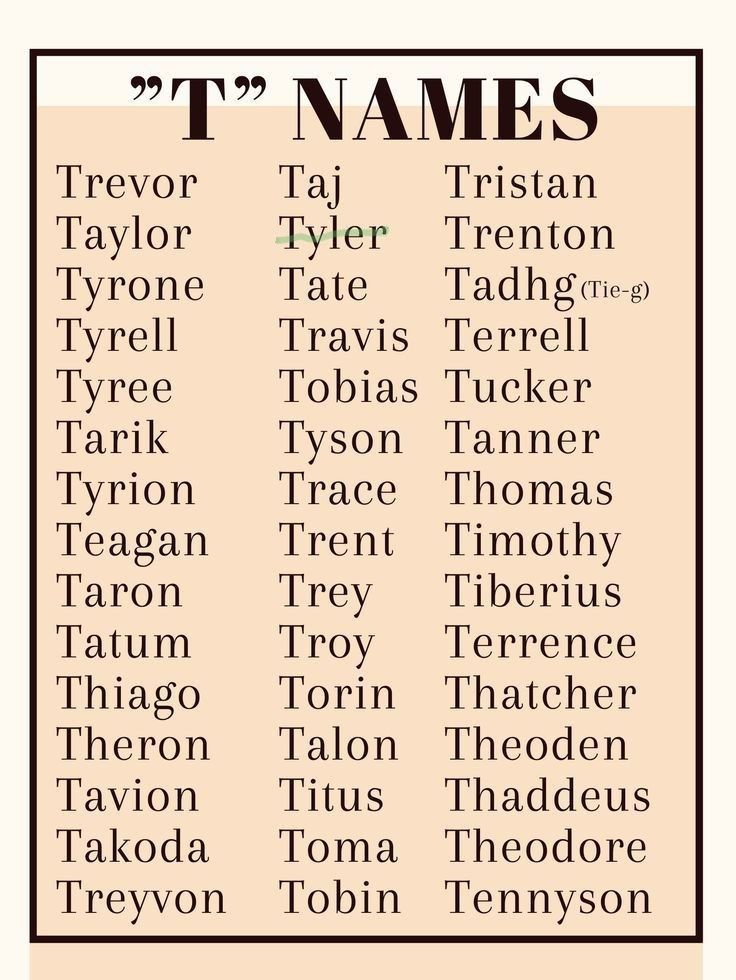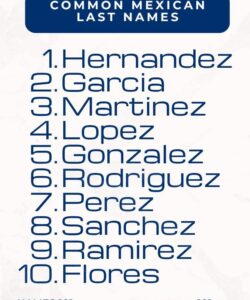Exploring the vast and varied world of surnames is always a fascinating journey, offering a glimpse into history, geography, and personal heritage. Among the countless ways families have identified themselves through generations, those beginning with the letter ‘T’ hold a special place, representing a diverse array of origins from different cultures and languages across the globe. From the bustling marketplaces of medieval Europe to the quiet villages of ancient lands, these names carry stories waiting to be discovered.
Surnames are much more than just labels; they are living relics that connect us to our ancestors and the paths they walked. Many were originally derived from occupations, geographical locations, personal characteristics, or even the first names of a parent or grandparent. The letter ‘T’ provides a starting point for an incredible range of such origins, reflecting the richness of human history and migration patterns.
Whether you are tracing your own family tree, embarking on a genealogical adventure, or simply curious about the tapestry of human names, delving into specific categories can be incredibly rewarding. In the following sections, we will explore some prominent and interesting last names that start with t, uncovering the meanings and histories that make each one unique and compelling.
A Deep Dive Into Surnames Beginning with T
-
Taylor
The surname Taylor is one of the most common occupational names, derived from the Old French word “tailleur,” meaning “to cut.” It literally refers to a tailor, a person who cut cloth and made garments. This profession was highly essential in medieval society, leading to the widespread adoption of the name.

Families bearing the Taylor name can be found throughout the English-speaking world, particularly in Britain, America, Canada, and Australia. Its prevalence speaks to the universal need for skilled artisans and the straightforward way medieval people often adopted their trade as their family identifier.
-
Thomas
Thomas is a patronymic surname, meaning “son of Thomas.” The given name Thomas itself has Aramaic origins, derived from “T’oma,” meaning “twin.” It gained immense popularity due to Saint Thomas, one of the twelve apostles of Jesus.
This surname is widespread across many cultures, especially in Wales where it is exceptionally common due to the influence of the Bible. Its adaptability and clear religious connotations helped it spread far and wide, making it a truly global surname with deep historical roots.
-
Thompson
Similar to Thomas, Thompson is also a patronymic surname, signifying “son of Thom” or “son of Thomas.” The ‘p’ in Thompson is an intrusive letter, often added for ease of pronunciation between the ‘m’ and ‘s’ sounds. It emerged as a distinct variant of the original Thomas surname.
Thompson is particularly prevalent in the northern parts of England and Scotland, where it became a prominent clan name. Its widespread distribution reflects the enduring popularity of the given name Thomas and its many different phonetic and written adaptations over centuries.
-
Turner
Turner is another occupational surname, referring to someone who worked with a lathe to turn wood or bone into various objects, such as bowls, spindles, or furniture legs. The name comes from the Old French “tourner” or Old English “turnian,” both meaning “to turn.”
This surname highlights a specific skilled trade that was vital in pre-industrial societies. Families with the Turner name likely trace their lineage back to craftsmen who were adept at this particular form of artistry and manufacturing, contributing essential goods to their communities.
-
Travis
The surname Travis has geographical origins, derived from the Old French “travers,” meaning “a crossing” or “toll bridge.” It was often given to someone who lived near a crossing point, a bridge, or perhaps operated a ferry or collected tolls there.
This name paints a picture of individuals situated at significant points of transit and communication. Its presence indicates a historical connection to specific locations that were important for travel and trade, giving the surname a sense of movement and connection.
-
Tucker
Tucker is an occupational surname with roots in the Old English “tucian,” meaning “to torment.” However, in the context of surnames, it refers to a “fuller” or “cloth-worker.” Fullers were responsible for ‘tucking’ or trampling cloth in water to clean and thicken it, an important step in textile production.
This name, therefore, connects to the ancient and crucial textile industry. Those bearing the Tucker surname would have been part of a significant trade, ensuring the quality and finish of fabrics that clothed the population, showcasing a heritage of craftsmanship.
-
Todd
Todd is a descriptive surname, derived from the Middle English word “todde,” which means “fox.” It was often given to someone who possessed characteristics associated with a fox, such as cunning, slyness, or perhaps someone with red hair, resembling the animal’s fur.
The use of animal names as descriptors was common in early surname formation, reflecting keen observations of nature and human personality. The Todd surname carries with it a playful or observant historical tag, linking families to this clever creature.
-
Thorpe
Thorpe is a topographical surname of Old Norse origin, derived from “þorp,” meaning “hamlet” or “small village.” It was given to individuals who lived in or came from a small settlement or outlying farmstead, distinguishing them from residents of larger towns.
This surname is particularly common in areas of England that experienced significant Norse influence, such as the Danelaw region. It evokes images of rural life and close-knit communities, linking its bearers to specific landscapes and ancient agrarian societies.
-
Terry
The surname Terry is derived from the Germanic personal name Theodoric, meaning “ruler of the people.” It made its way to England with the Norman Conquest and evolved over time into various forms, including Thierry and then Terry.
As a name derived from a prestigious given name, Terry carries a sense of ancient lineage and leadership. Its journey through different languages and cultures highlights the interconnectedness of European history and the enduring appeal of certain names.
-
Trujillo
Trujillo is a Spanish habitational surname, indicating someone from the town of Trujillo in Cáceres province, Spain. The town’s name itself is believed to come from the Latin “Turgalium,” or possibly a derivation from “turris Iulia,” meaning “Julia’s tower.”
This surname is a clear geographical marker, linking families directly to a specific place with Roman roots in the Iberian Peninsula. It is particularly common in Spanish-speaking countries and among communities with Spanish heritage, telling a story of migration and regional identity.
-
Tremblay
Tremblay is a prominent French-Canadian surname, originating from a place name in France. It refers to a location characterized by aspen trees, as “tremblaie” in Old French means “an aspen grove” or “a place where aspens grow.”
This surname carries a beautiful natural image, connecting families to specific landscapes in France. It is extremely common in Quebec, Canada, due to early French settlers, making it a distinctive marker of French-Canadian heritage and the journey across the Atlantic.
As we can see, the collection of last names that start with t is incredibly rich and diverse, offering a window into a multitude of historical periods, geographical locations, and social structures. Each surname, whether derived from an occupation, a place, a personal characteristic, or a paternal lineage, carries with it a unique story and a connection to the past. They remind us that our names are not just labels but echoes of lives lived and journeys undertaken by those who came before us.
The exploration of these names underscores the profound ways in which language, culture, and history intertwine to form our identities. From the common and universally recognized to the more distinct and regionally specific, these surnames continue to evolve and spread, carrying their ancient meanings and new associations into the future. They are a testament to the enduring human desire to categorize, identify, and remember.



